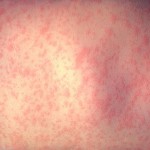What is influenza?
Flu is an illness caused by the flu virus. It is passed from person to person through droplets created when someone with the infection sneezes or coughs. Flu can spread quickly.
Symptoms of flu include a high temperature (fever), muscle aches, cough, headache and extreme tiredness. It usually lasts for between two and seven days. Most people recover fully but complications such as pneumonia may develop.
Immunisation against seasonal flu?
Flu immunisation (the flu jab) gives excellent protection against seasonal flu and lasts for one year.
The vaccine will be available from your GP and some participating pharmacies from October. It is made from the strain of flu virus that is expected in the coming winter. Each year this is slightly different, so a new jab needs to be made every year.
You need a yearly jab to stay protected.
Flu jabs do not prevent other viral infections which can cause coughs, colds and flu-like illnesses. It protects only against the particular flu virus that is expected it the coming winter.
The vaccine cannot cause any other infections.
Who should be immunised against the seasonal flu virus?
You should be immunised against the seasonal flu virus each autumn if you:
- Those aged 50 years or older
- Those with chronic illness requiring regular medical follow-up e.g. chronic heart disease, chronic liver disease, chronic neurological disease, chronic renal failure, chronic respiratory disease, diabetes mellitus
- Those with immunosuppression due to disease or treatment
- Those with any condition that can compromise respiratory function
- Those with Down’s syndrome
- Children on long-term aspirin therapy
- Those with morbid obesity
- Residents of nursing homes, old people’s homes, and other long stay facilities
- The main carer for an elderly or disabled person
- Staff involved in direct patient care
- Pregnant women
- Those who have close, regular contact with pigs, poultry and water fowl
- Anyone (aged 6 months and older) who wishes to reduce their risk of infection may choose to have the seasonal influenza vaccine
Pneumonia
Pneumococcus can cause diseases such as pneumonia, meningitis and blood infections.
You should consider having this vaccine if you are over 65 years or have certain diseases of the lung, heart, kidney, liver or nervous system.
This vaccination is normally given just once. It provides lifelong protection (except in certain circumstances).




